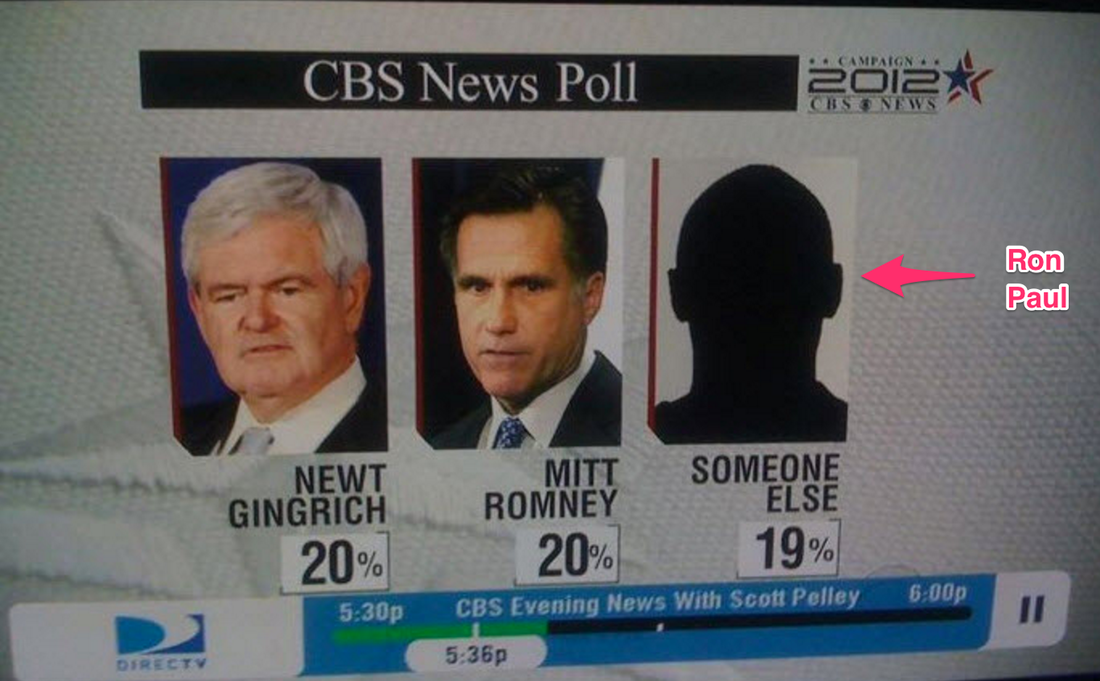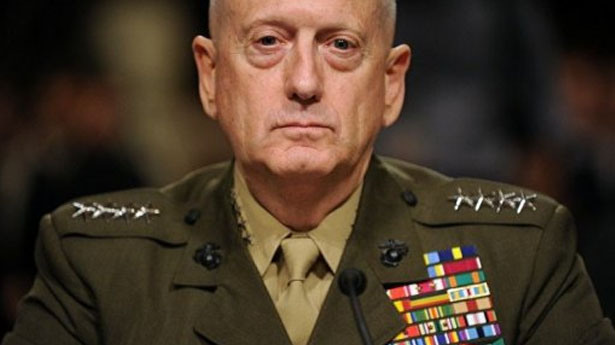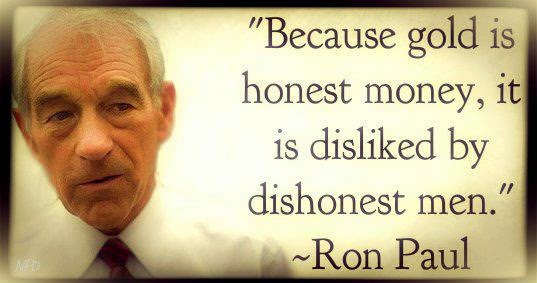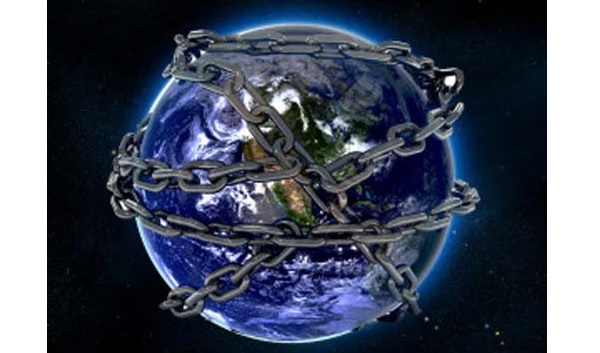|
By Ron Paul
For decades the US and Saudi Arabia have shared a peculiar relationship: the Saudis sell relatively cheap oil to the United States for which they accept our fiat currency. They then recycle those paper dollars into the US military-industrial complex through the purchase of billions of dollars worth of military equipment, and the US guarantees the security of the Saudi monarchy. By accepting only dollars for the sale of its oil, the Saudis help the dollar remain the world’s reserve currency. This has meant that we can export inflation, finance the warfare/welfare state, and delay our day of financial reckoning. But it seems this longstanding entangling alliance is coming apart. First, the US nuclear deal with Iran has infuriated the Saudis. They view Iran as bitter rivals and spared no expense in Washington to derail the deal. They were not successful – at least not yet. They have also been frustrated that the US has not devoted more of its resources to the Saudi “regime change” project in Syria, seen as a way to reduce Iranian influence in the Middle East. But it is the potential release of the secret 28 pages of the 9/11 Report that purportedly show Saudi government involvement in the attacks on New York and Washington that threatens to really blow up US/Saudi relations. The relatives of the victims are demanding the right to hold the Saudi government legally accountable if it is shown to have had a role in the attacks, and the Senate’s “Justice Against Sponsors of Terrorism Act” would lift Saudi sovereign immunity and allow lawsuits to go forward. The Saudis threaten to dump three-quarters of a trillion dollars in US assets if the bill becomes law – a move that could rock world markets and even the shaky Saudi economy. President Obama’s disastrous visit to the Saudi capital last week may have been seen as the last straw. Billed in Washington as a trip to shore up relations, President Obama got the cold shoulder as the Saudi monarch sent a low-level functionary to meet the US president’s plane while he met an incoming delegation from the Gulf Cooperation Council. The message was pretty clear. The Obama PR team tried to put a positive spin on the visit, saying it "really cleared the air" between the two countries. But influential former Saudi Intelligence Chief Prince Turki Al-Faisal disagreed, telling CNN that there is going to have to be "a recalibration of our relationship with America." I happen to agree with Prince Faisal. We are long overdue for a recalibration of our relationship. While I do not believe we have any business telling the Saudis how to run their country, the decades-long special arrangement must come to an end. No more US-taxpayer subsidized arms deals to a Saudi Arabia that slaughters civilians in Yemen, transfers weapons to ISIS and other Islamist extremists in Syria and elsewhere, beheads its own citizens for minor offenses, finances terrorism overseas, and threatens other countries in the region. It should be known that no longer will the US guarantee the security of the Saudi kingdom. If the Saudis refuse to sell us their oil in protest, there are other producers who would be happy to step in. The Iranians have long been prevented from selling their oil on the world market. If the Saudi government was involved in the 9/11 attacks, it should enjoy no immunity from justice. If that means reciprocal moves from other countries against the harm US foreign policy causes overseas, so be it. Yes, Prince Faisal. By all means let’s "recalibrate" our relationship. No more entangling alliances with Saudi Arabia!
By Chris Rossini
In an earlier column, it was pointed out that libertarians are in an intellectual battle. Ideas rule the world, and if the ideas of non-aggression and peace are to ever dominate, then the strenuous task of convincing a critical mass of individuals is the only lasting road to success. Such a road is filled with massive resistance. Waves and waves of people are waiting to shout down anyone that advocates non-aggression and peace. Think about the massive resistance that Ron Paul faced when he was standing on those presidential debate stages. The other candidates didn't like what he stood for. The moderators mocked and ignored him. The networks that broadcast the debates hated him:
The reporters lined up to smear him. The audience booed him.
It was Ron Paul and the ideas of liberty against them all. And yet, those powerful ideas carried the day. Millions and millions were awoken from the government fantasy, not just in America, but around the globe. The effects are very noticeable to this day. The ideas of liberty are percolating under the surface. But why is there such massive resistance to liberty? Freedom is so far superior to the ideas of government control. Why is freedom so despised in the "land of the free"? Well, ideas rule the world. Obviously the dominant thoughts that swirl through people's minds are latched onto believing in government control. This is nothing new. Mankind has suffered under every form of tyrannical government for all of recorded history. We're only 200+ years from when early Americans believed that some Europeans were "royalty". Those ideas still exist around the world today. Some people are still believed to be "royalty". Ironically, modern American presidents are treated and revered even more than royalty! They are believed to run the world! Of course, presidents do no such thing. But that doesn't matter. The belief is there, and that's all that matters. Why are the beliefs in government control there? It's not a natural occurrence. After all, we are all born free. No one exits the womb with a loyalty oath (or "allegiance") to anyone or anything. Belief in government control must come from outside of the newborn. It must trickle down from the government itself. Long before this author and every reader was born, a "system" was put into place. The foundation for drilling in the ideas of government control was cemented with the formation of compulsory government schools. Forcing every child to attend a government building for "education" would create a bedrock for the massive resistance to liberty that we see today. We all know from sports (and our hobbies) that "practice makes perfect". We all know that "repetition is the mother of learning". Government schools would make use of these truths. Almost every child would be forced into a government building and the very first act of the day would be the recitation of a "pledge of allegiance". This is done every single day. Not once a month and not once a week. Every single day for at least 18 years. In these "schools", government tells you the history that it believes you should know. Oftentimes there's a picture of the president (and definitely flags) strewn throughout the building. You're told that government is there to "regulate" life, and no thought to the contrary is ever permissible. Conformity is paramount. Creativity and individuality are squashed. By the time most kids leave after 18 years, the ideas of liberty have been completely overpowered. They were born free, and now freedom has taken on a totally different meaning. Now, the fact that Americans live under the U.S. government means that they are free. Each American even has an identification number as well. Like branded cattle, the Social Security number proves that each tagged citizen is a member of the exceptional taxpayers. This "system" does not end at government schools. Conformity and repetition aren't just for the kids. Where the "schools" leave off, the government's FCC licensed media picks up. Every major source of "the news" marches in lockstep with its licensed counterparts. The only variation is how government power should be exercised. Not if it should be exercised. Just how. And so, Americans are drilled 24 hrs. per day to look to government for the solutions of problems. The only question that is debated is what government should do. The beliefs are strong, and they are re-enforced in recreational life as well. What happens whenever there is a sizable sporting event? You're guaranteed to see military jet flyovers, giant flags and troops singing the national anthem. Not just once every 10 games, or even every 2 games. This ritual is performed at every single game, and at every major sporting event. Where else can you get 60,000 or 100,000 grown men to all stand up together, take off their hats, put their hands on their hearts, and sing a song about their government? The repetition from government schooling never left them. They know the drill, and obey without question when the stadium announcer tells them to stand. Does it make sense now as to why there is so much massive resistance to liberty in the "land of the free"? It should. If you're a libertarian, should you be surprised when people call you "fringe," or a "kook"? No, you should expect it. How could it be any other way under the aforementioned "system"? Advocating peace, liberty and non-aggression is fringe (for now). It doesn't mean that the ideas are untrue. It just means that the ideas are swirling around the minds of the minority. Should you be surprised that the media and its "reporters" will use every kilobyte of digital ink to try to discredit liberty? No. It would be weird if they didn't. It's their job, and they could be easily replaced by another "reporter" if they were to gain a conscience. However, as massive as the resistance is, it does not change the task at hand. Ideas still rule the world, and the ideas that people embrace are never fixed or set in stone. If they were, we'd be in big trouble. When a critical mass of individuals hold and believe the ideas of liberty, the rest of the population will follow, even if they don't necessary believe in liberty. The great mass of people always follow whatever the passionate few believe with conviction. That's just the way it is. It doesn't matter whether the ideas are in support of tyranny or liberty. The passionate few who advocate liberty just need to reach a large enough number. What that number is, no one knows. The open minds are out there. They just need to be reached. But the road to them is paved with massive resistance. Expect it. By Daniel McAdams The neocons have been in a panic this election season. One by one, their preferred choice for the Republican presidential nomination has been soundly rejected by the uncooperative American voting public. Sen. Lindsey Graham made a run for the nomination saying, "If you’re tired of war, don’t vote for me," and nobody did. Perhaps the idea of perpetual war to the very last US dollar is beginning to wear thin among Republican voters. Though the two Republicans left standing, Sen. Ted Cruz and Donald Trump, have endorsed sending thousands of troops into the Middle East and even turning the sand into glass with a nuclear weapon, they are viewed as not reliably neoconservative enough for the Beltway bombardiers. William Kristol, absolutely forlorn over the American voter's rejection of the reliable Republican neocons in the race, has thrown his hat in with a very reliable Democrat neocon, Hillary Clinton. "I would rather see Hillary than Trump," said Kristol. But such a move comes not without risk for the Kristol-ites. The neocons migrated from the Democratic Party to the Republican Party like a virus to a new host and one promising candidate does not a happy return necessarily make. What to do? Again from Kristol: "We'll have to start a new party if it's Trump." And that's what they're doing. With the help of the compliant media, of course. Thanks to Target Liberty for its diligence in "Mad Dog" spotting, we see the (former) house organ of the CIA, Time Magazine, joining the neocon cheering section behind the notion of a third party run by retired Major General James "Mad Dog" Mattis, former Commander of the US Central Command. In an article with the fallacious title, Why Americans Want a Military General in the White House, Time wonders: What is it about military leaders that has led so many voters to champion them for the Presidency? After all, it’s not like the nation has emerged victorious from its recent wars. ... Retired Marine general James “Mad Dog” Mattis, who hung up his uniform three years ago, has fervent supporters who want him to run for President. The very title of the article is a fraud. Who are these "Americans" who are clamoring for a General to become president? Neocons! What percentage to neocons make up of the US electorate? Re-read the first paragraph for an indication. Why are the neocons panting like a dog in heat for "Mad Dog" Mattis? His speech today at the military-industrial complex funded Center for Strategic and International Studies tells the tale of the tape. What gets the Mad Dog all hot and bothered? War with Iran! Barked the "Dog" today: The Iranian regime, in my mind, is the single most enduring threat to stability and peace in the Middle East...For all the talk of ISIS and Al Qaida everywhere right now… they’re a very serious threat. But nothing is as serious in the long term enduring ramifications, in terms of stability and prosperity and some hope for a better future for the young people out there, than Iran. And, in what must be music to the ears of all those inside the Beltway who have become rich robbing the rest of us to pay for their wars, Mattis spells out his foreign policy. In a word: War! We know that vacuums left in the Middle East seem to be filled by either terrorists or by Iran or their surrogates or Russia … In order to restore deterrence, we have to show capability, capacity and resolve. Using our special neocon-speak translator, we see that "capability, capacity and resolve" actually means "weapons, deployments, and wars." No wonder Kristol and company are touting this man as their savior. General George Washington was a reluctant political leader. He accepted the office of president only at the insistence of others. His preference after the battle was won was to hang up his guns and retire to hemp-growing and whiskey-distilling. In these days of increasingly political military officers, it seems the notion of civilian control of the military is, like the Constitution itself, just another anachronism. Ladies and Gentlemen, we give you President Mattis: The first time you blow someone away is not an insignificant event. That said, there are some a**holes in the world that just need to be shot. Daniel McAdams, Executive Director of The Ron Paul Institute, is this week's guest on Mises Weekends. Daniel discussed the role that Ron Paul played in creating the noninterventionist populism visible in both the Trump and Sanders campaigns, and how the public now sees the Iraq war as a mistake. Daniel also discussed the depth and reach of the "war party" lobby, marked by well-funded think tanks and a revolving door of hawkish congressional staffers. How do neoconservative interests get their hooks into members of Congress? How do people like Bill Kristol (who never seems to be right about anything), maintain their grip on the US foreign policy establishment? All of this and more below:
By Tho Bishop
On Wednesday, Jack Lew announced that the US Treasury was following Ben Bernanke’s advice and keeping Alexander Hamilton on the $10, instead deciding to bring Harriett Tubman to the $20. While Lew’s news left America distracted in debate over whose portraitshould grace the Federal Reserve’s most popular bank note, Zerohedge was highlighting how China was taking important steps to distance themselves from the dollar. Earlier this week, Reuters reported China taking the bold step of launching a yuan-denominated gold price. Reuters noted: As the world's top producer, importer and consumer of gold, China has baulked at having to depend on a dollar price in international transactions, and believes its market weight should entitle it to set the price of gold.
During an interview with Bloomberg TV Hao Hong, managing director and chief China strategist with Bocom International, one of China’s largest banks, put it more bluntly:
By trading physical gold in renminbi, China is slowly chipping away at the dominance of US dollars....The gold reserve on the China balance sheet has almost doubled since 2009. By holding gold, and moving away from a US-dollar centric system, we actually require less US dollars.
Of course the true measure of China’s gold holdings is still a closely guarded secret by the Chinese government. While the country has taken steps to increase transparency in its reserved reporting, which bolstered their successful campaign to have the yuan factored into the IMF’s Special Drawing Rights, James Rickards explains:
[T]hese figures are misleading because China keeps several thousand tonnes of gold “off the books” in a separate entity called the State Administration for Foreign Exchange (SAFE). Small amounts are transferred from SAFE to PBOC monthly, and that becomes the basis for the official reserve reports.
Along with bolstering their gold holdings, China has reformed its banking system to be friendlier to gold trading. In 2012, China announced interbank gold lending, to ease the exchange of gold between Chinese banks. China’s growing interest in gold’s value as money shouldn’t come as a surprise considering the Wall Street Journal, a few months later, reported that the works of Hayek and Rothbard were being read by Communist Party officials in the country.
So while, in spite of Ben Bernanke’s assurances to the contrary, it is clear that China still sees gold as money. And, as Rickard’s argues in his new book The New Case for Gold: Despite disparagement by policy makers and economists, it will remain as a store of wealth par excellence, and continue to play an integral part in the world's monetary system.
This article was originally published at The Mises Institute.
By Nick Giambruno
If you’ve never heard of the Foreign Account Tax Compliance Act (FATCA), you’re not alone. Few people have, and even fewer fully grasp the terrible things it foreshadows. FATCA is a U.S. law that forces every financial institution in the world to give the IRS information about its American clients. Complying with it is a huge financial and administrative burden, measured in hundreds of billions of dollars. It’s a paper shuffler’s dream come true. FATCA is the reason the vast majority of banks, brokerages, and other financial institutions outside of the U.S. shun American clients. I was just in Singapore, which has one of the soundest banking systems in the world. I can personally attest that banks there treat potential American clients as radioactive liabilities to be avoided. This is how FATCA makes it much more difficult to move money outside of the U.S. Combined with other costly, extraterritorial U.S. regulations, the law amounts to de facto capital controls. It’s no surprise so few people understand FATCA. Governments and institutions often give their most dangerous laws and schemes dull and opaque names to cloud their true purposes. The Federal Reserve is an excellent example of this. After two central banking experiments failed to take root in the 1800s, anything associated with a central bank became deeply unpopular with the public. So, central bank advocates tried a fresh branding strategy. Rather than call their new central bank the Third Bank of the United States (the previous two were named the First and Second Bank of the United States, respectively), they gave it a vague and boring name to hide it in plain sight from the average person. They named it the Federal Reserve. Unfortunately, these smoke and mirrors worked pretty well. Nearly 100 years later, most Americans don’t have the slightest clue what the Federal Reserve is, what it does, or how it affects them. I think the same dynamic is at work with FATCA. Ostensibly, FATCA is about cracking down on offshore tax evasion. But I think the U.S. government has another, more sinister motive. Let’s peel back the layers of this onion… FATCA should bring in around $900 million per year, on average, and that’s an optimistic estimate. However, $900 million would only be a drop in the bucket (around 0.2%) next to the federal government’s $438 billion deficit. Even if the U.S. moderately reduces the federal deficit, FATCA revenue would still be a small pittance in comparison. This begs the question: Why would the U.S. government go to the enormous cost and trouble of implementing FATCA for such a relatively meager amount of money? FATCA on Steroids FATCA’s real purpose is not to collect money. It’s to pave the way for a global FATCA, informally known as GATCA. You see, complying with FATCA often breaks privacy laws in other countries. To get around this, the U.S. government has negotiated bilateral agreements with pretty much every country in the world. But it’s not practical for each and every country to create its own version of FATCA and accompanying web of bilateral agreements. That would be slow and tedious. So, the central economic planners at the G20 and OECD have devised a new “global standard” for the automatic exchange of financial information between governments. It’s called GATCA, and it’s modeled on FATCA. In other words, bureaucrats from these supranational institutions are foisting a “FATCA on steroids” on the world. This would have been impossible if the U.S. hadn’t cleared the path with FATCA. The G20 and OECD needed the U.S.—the sole financial superpower (for now at least)—to cram its privacy-killing measures down the throats of the rest of the world. No other country could have done it. FATCA is only possible because the U.S. carries a big stick: the ability to refuse access to its financial system and the world’s premier reserve currency. Don’t sign up for FATCA, and your country can forget about the vast majority of international trade. It didn’t take long for most of the world to fall in line. When Russia and China signed on to FATCA, it became a fait accompli. There are no other meaningful countries left to resist it. This set the stage for GATCA. Unfortunately, GATCA will likely be an irreversible reality in the not-so-distant future. It’s also highly probably that the OECD, the G20, and other organizations will sanction or otherwise blackmail countries that don’t comply. That pressure would likely be too enormous for the vast majority of countries to bear. In the end, this means a permanent record of every penny you have ever earned, saved, borrowed, or spent anywhere in the world will be instantly available for analysis and scrutiny by countless government agencies, regardless of any actual or suspected wrongdoing. But wait, there’s more! If FATCA wasn’t the end game, don’t expect GATCA to be either. Let’s peel back the next layer of the onion. What Comes Next Did you really think all these governments would go through all the trouble of creating the architecture to gather all this financial data… and then just sit on it? Of course not. They’re going to leverage the data as much as possible. This will have terrifying consequences for the individual. It’s no secret that advocates of big government have long fantasized about creating a global tax. Whether it’s the global carbon tax, a worldwide tax on financial transactions, or a UN tax on air and sea travel, all prior attempts haven’t really worked. The infrastructure wasn’t in place. However, that could all change with GATCA, which could ultimately make the disturbing dream of a global tax a reality. Bankrupt governments, like France and the UK, are also on board with GATCA. It would allow them to fleece and control their citizens more efficiently. Strangely, you never hear financially sound countries, like Switzerland, Singapore, or Hong Kong, advocating for FATCA, GATCA, or a global tax. It’s only the failed welfare states drowning in debt. And that’s no coincidence. Old Wine in New Bottles The government is selling FATCA the same way it originally sold the income tax to Americans: as a measure targeted only at the “rich.” Of course, once you give politicians an inch, they take a mile. When the federal income tax was introduced in 1913, individuals making up to $20,000 (around $475,000 today) were only taxed at 1%. The top bracket kicked in at $500,000 (around $12 million today) with a tax rate of only 7%. Of course, once the infrastructure was in place for the federal income tax, politicians naturally couldn’t resist ramping it up. Eventually, it snowballed into the monster we have today, which thoughtless Americans passively accept as “normal.” Expect a similar dynamic and gradualism with FATCA, GATCA, and a global tax. What You Can Do The government used obscure and boring wording to conceal the true purpose of the Federal Reserve from the average American. It’s done the same thing with FATCA. In reality, FATCA is all about setting up the architecture for a global tax. Politicians around the world see citizens as milk cows… They merely exist to be squeezed to the last drop. That’s why they’re so eager to kill financial privacy with FATCA and GATCA. They’re building a giant tax farm and erecting electric fences to keep the cows—and their milk—from escaping. Welcome to the new feudalism. Unfortunately, there’s little any individual can do to change the trajectory of this trend. You can only try to save yourself from the consequences of this stupidity. Politicians around the world are working hard to build this emerging prison planet. But it’s still possible to escape. This article titled The Shocking Reason for FATCA… and What Comes Next was originally published at The International Man.
By Chris Rossini
In the U.S. (the land with the biggest government and central bank on Earth) the middle class is suffering. Government on all levels, the Fed, the welfare state, and military empire have bled the U.S. economy dry. Naturally, scapegoats are sought. And since Americans are glued to opinions of politicians and the mainstream media, the politicians get to define the scapegoats. If you're wealthy and have lots of money, a target is on your back. You're such an easy target. Envy and jealousy are extremely powerful emotions and politicians have been tapping into them for centuries. Emotions are much easier to appeal to than logic. A soundbite is more powerful (in political terms) than thinking things through. The media is constantly filled with statistics of CEO's making 100x or 300x (or whatever) more than the average worker. We hear about the 1% and "the rich". You're supposed to get angry at these people. But should you? You're in charge of your own life. Who cares what some CEO is earning? How valuable are you to your own boss? That's the only thing that you have control over. How good are you at satisfying consumer desires? Are you expanding in value? Stagnating? Contracting? Alas, it is much easier to point the finger outward than inward. Politicians feed on that natural tendency. If the fingers are going to point outward, politicians must first make sure that they're pointed away from government and towards some obscure CEO's who are making a lot of money. The politicians can then pose as "the fixers," even though they're the source of the misery. Granted, there are CEO's who are in bed with government. They secure contracts, help craft laws that keep away competition, along with a million other nefarious things. This stems from the belief that government must have its hands in everything. If government we're strictly there to protect liberty and punish any deviations from it, there would be nothing for corporations to latch onto. But since the U.S. government has morphed into an institution that systematically destroys liberty, there are going to be corporations that hop along for the ride. But the distinction between the politically-connected rich and the legitimate rich is never made. They're all thrown into one big pile. Let's look at the legitimately rich for a moment, as they are the unfortunate victims of the mobs of envy. We all get paid for bringing value to the marketplace. The more valuable you are to the marketplace, the more money you're going to make. That doesn't mean that the person who makes little money is not a valuable person. He can still be a valuable father, or friend, or husband. But to the marketplace, he isn't valuable at the moment and may want to work on himself in that specific area. Then again, he may not. You don't have to be valuable to the marketplace, and many people are content with just getting by. But if a person does want to be valuable to the marketplace, it's in his sole power to make it so. How liberating is that? You don't need anyone else's permission or approval, and you definitely don't need some bottom-feeding politician. The politician can only hurt you. He cannot make you more valuable. Now if someone is legitimately (i.e. without government relationships) earning a lot of money, it means that he's become very valuable to the marketplace. When it comes to satisfying consumer desires, the man is a champion! If, at the same time, this individual is a great spouse, friend, or father, than you have a man of character. These are not individuals that deserve to be attacked by angry mobs or slime-ball politicians. Rarely does one become valuable to the marketplace by accident. It takes effort and discipline, along with more trial-and-error than most people can stomach. If someone does become valuable to the marketplace by accident, they oftentimes end up blowing their money and are forced to start over. There was no foundation (i.e., good habits and disciplines) to sustain and keep their newfound wealth. Now, if a person has become extremely valuable to the marketplace, does he "deserve" to make 100x or 300x more than the average person? YES!!! If a CEO (again, legitimately) guides a company to earn $10 billion, or $100 billion, should he be paid multi-millions? Yes, of course! That's chickenfeed! If his current board of directors don't pay it, the competition will snap the CEO up. When you're valuable to the marketplace, people will fight to pay you more money. If you're not valuable (to the marketplace) you have to fight to get someone to pay you anything. There isn't a politician on Earth that can change this. Supply and Demand yields to no man. It just is, and cannot be revoked. The only thing that a politician can accomplish is to make life much harder for those who are less valuable to the marketplace. Amazingly, that's exactly what they do, and to much fanfare. Individual responsibly is just too hard for most to accept. It puts them in the driver's seat, and they're scared to take the wheel. It's much easier to point their fingers outwards. It's much easier to let Bernie Sanders drive them over a cliff. |
Archives
July 2024
|














 RSS Feed
RSS Feed



